About the role of the producer of the project GENESIS

Samuel Goldwyn, a famous American producer, once said: “God makes stars. I just produce them.” Does Nachum Slutzker, the producer ofBaruch Berliner’s Genesis International Project, who managed to unite talented musicians, dancers and managers all over the worl, dagree with this statement. But first let’s get acquainted with the producer:
Nachum Slutzker is a successful Israeli producer, initiator and creator of the Baruch Berliner’s Genesis International Project, a wonderful musician and teacher, author of textbooks on learning the violin, the co-founder of the network of elitist science and art schools Israeli Lyceum, founder and leader of several music schools, faculties, youth orchestras in Israel,initiator and organizer of art festivals, in particular, the International Musical Spring Festival in Herzliya (Israel).
Nachum was born in Lithuania, in the city of Kaunas, received a quality musical education, first at the Vilnius Conservatory, and then at the Rubin Academy of Music in Tel Aviv after moving to Israel in 1981. Slutzker settled in the city of Herzliya, where he currently resides.
Nachum Slutzker devoted the last two decades to his career as a producer and fifteen of them he works with the famous Israeli composer, poet and scientist Baruch Berliner, the author of a number of musical works, including symphonic poems, oratorios, concertos, etc. Their joint project symphonic poem “Genesis” became the most successful in the producer’s career. 31 countries of the world applauded the work, famous conductors and musicians were involved, and the number of views on the YouTube channel of the project exceeds 4 million.
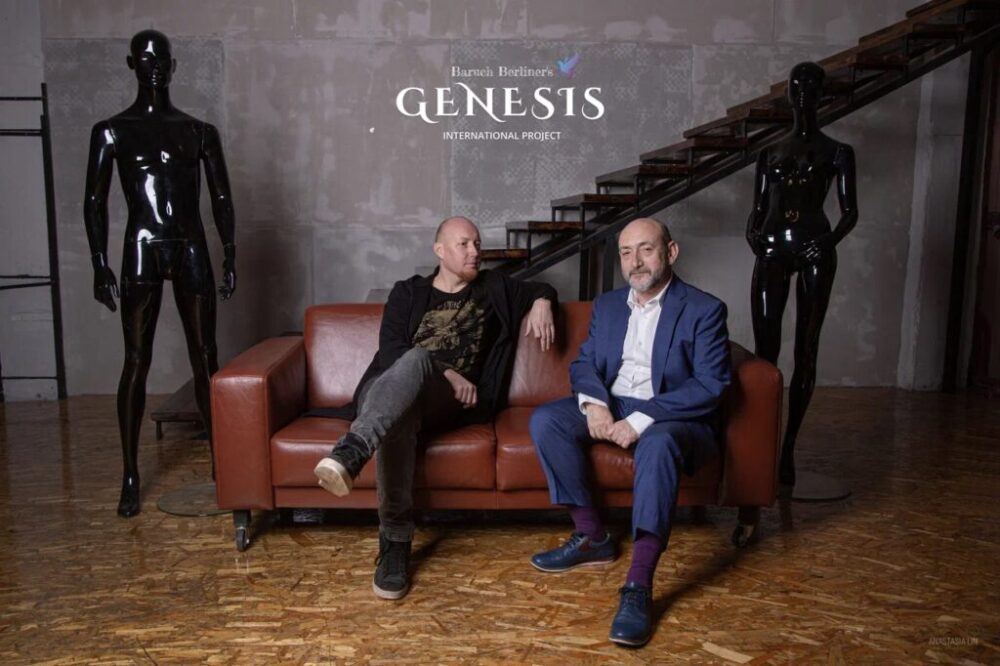
— Do you agree with Samuel Goldwyn’s statement?
In general, I agree with Goldwyn, in most cases that’s true. But I not only produce stars but also participate in their creationbecause I am involved in all stages in the creationof a work of art. I am a violinist, teacher, and for more than 30 years of teaching activity, leadershipof music schools, large projects and orchestras, I have gained relevant experience. I have found the formula for success for my students: initiative multiplied by motivation and multiplied by talent. But the most important thing in all this is the love for creativity!
In producing, I guess I’m a co-author of a work from the moment of its creation until the moment when this work is performedin the concert hall. On the one hand, I have to deal with the spiritual component of the project, and on the other, with its material part, since without it it is impossible to implement our ideas.
I am surrounded by interesting and talented people, and in communicating with them I see the beauty of my work. I would even say, I don’t treat it as a job, rather it’s a way of life.

— How did you meet Baruch Berliner? And why did you want to collaborate?
I think that our meeting was written in the stars. At first, he brought his two sons to me to learn to play the violin, because I was a sought-after teacher, and then Baruch himself began to take lessons from me, since as a child he studied the violin with the very famous Israeli composer and violinist Oeden Partos.
Gradually we got close and began to meet not only in classes, but also to communicate a lot in our free time. Baruch Berliner is a very intelligent person, so it was always very interesting to talk with him.
He brought a notebook to one of these meetings, where he wrote down his musical ideas. These were the melodies that came to his mind during walks by the lake in Switzerland, where he came to take a break from hard mental work while writing his doctoral dissertation.
One of the melodies really caught my attention, and I joked: “Well, Baruch, this will be the main theme of the creation of the world.” It’s unbelievablebut true, my joke came true. We began concentrating on harmony and composition, and the melody became one of the main themes of the Symphonic Poem “Genesis”.
We had a lot in common. At some pointhe even suggested that we go to the Alps, where no one would distract us, to continue working on thepiece of music. We did just that, it was a wonderful period in our joint work.
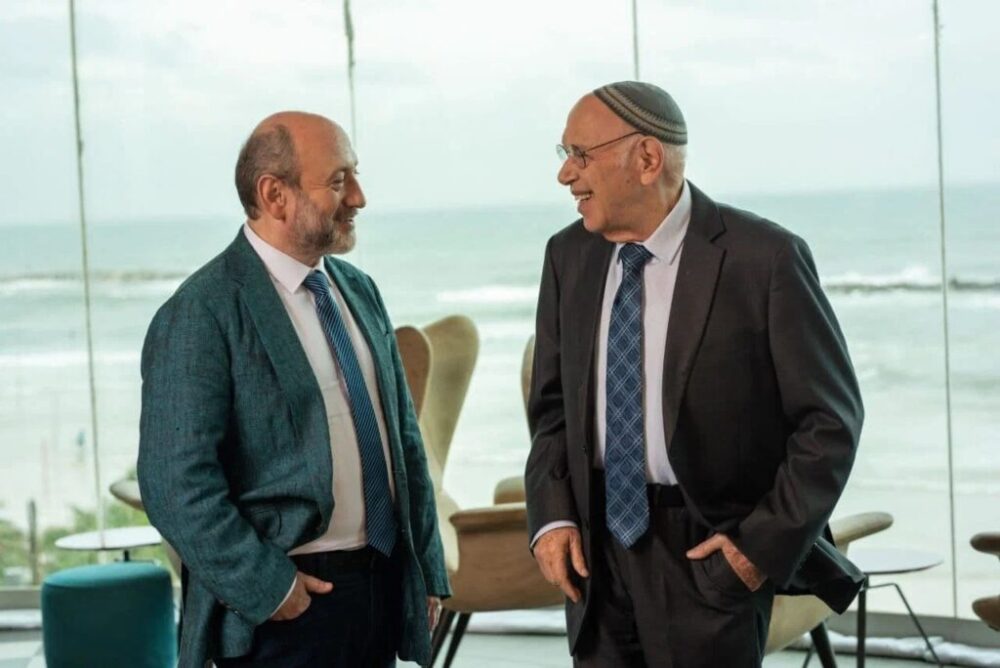
— Please tell us how you came up with the projectGenesis? And is it true that Baruch Berliner’s Genesis International Project was created specifically for this project?
Baruch and I became very close. He taught me the basics of Judaism, I was always interested in this topic, and I taught him music intensively. All seven parts of “Genesis” were carefully selected by Baruch, and the result was a cycle: from the creation of the world, through the creation of Adam and Eve, the Fall, the tragedy of Cain and Abel, the story of Noah and the Flood to the union of God and man.
By the way, the idea of adding the story of Cain and Abel to the work was accidentally suggested to us by one famous Israeli music critic. He attended our first concert at Tel Aviv University. When I saw him, I was honestly upset. Most critics believe that their job is to find fault with authors. There is much evidence of this in history, for example, Bizet’s opera “Carmen”; one of the French critics, having attended the premiere, wrote that it was the most untalented opera by the most untalented composer in the world. Therefore, Baruch and I were very pleased with the concert and the positive reaction of the audience but we waited and worried about what the critic would write. I re-read his article three times!He sang praisesof our work and suggested a good idea – this is how the “Cain and Abel” part appeared in the work.
At the same concert in Tel Aviv,there was a man from the Jerusalem Orchestra, and he invited us to perform in Jerusalem. And at the concert in Jerusalem there was a man who invited us to perform in Poland at the Huberman Festival, where we met conductor Michael Guttmanand received an invitation to the festival in America.
So gradually the project began to expand its geography and to date has been performedin 31 countries of the world, and in many countries, including Russia, our concerts have been held more than once.
In different countries of the world we have like-minded people who made their contribution to the popularization of the work. For example, in Russia we collaborate with the wonderful musician Mikhail Kirchhoff. In Kaliningrad we met Eugeniy Atsapkin, who proposed adding rock elements to the classical version. This is how “Genesis Rock Show” appeared in our arsenal.
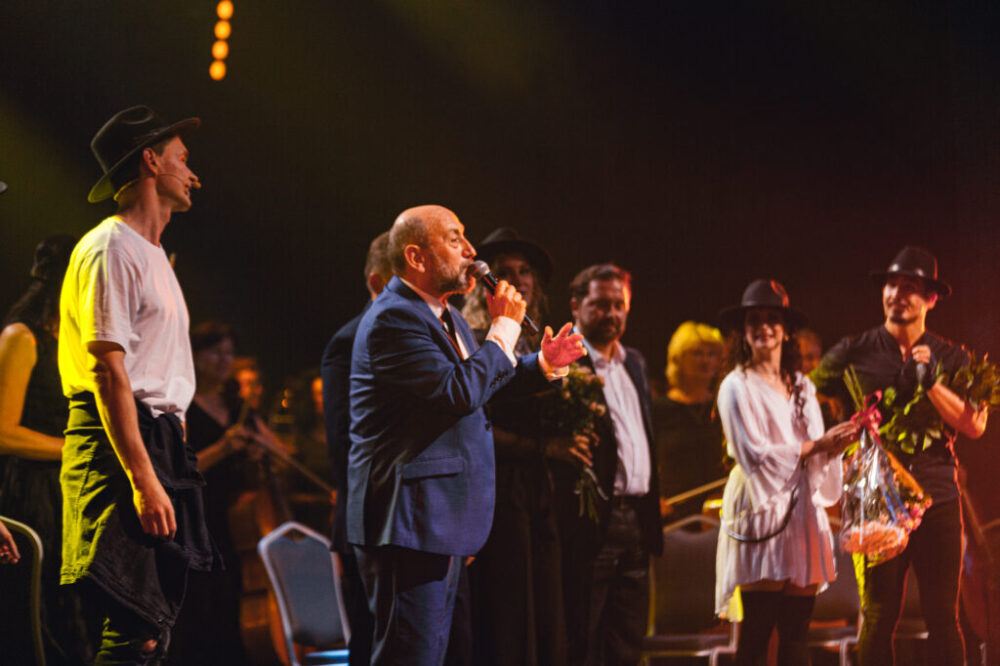
So our project is constantly crystallizing: new ideas and styles appear – this is ballet, and a symphonic rock version and classical version. I would like to note that in each country the narrator reads biblical texts in the language of the country where the concert takes place, this expands the projecttoo.
Baruch Berliner’s Genesis International Project was really created for the Symphonic Poem “Genesis”, but during its existence many other works appeared: the Symphonic Poem “The Binding of Isaac”, the oratorio “Abraham”, the Symphonic Poem “Jacob’s Dream”.”Jacob’s Dream” was reworked into a concerto for cello and orchestra, violin and orchestra, clarinet and orchestra, and is performed with great success by many famous musicians, such as Grammy-nominated cellist Dmitry Yablonsky, virtuoso violinists Graf Murzha and Haik Kazazyan, brilliant cellists Boris Andrianov and Sergey Antonov.
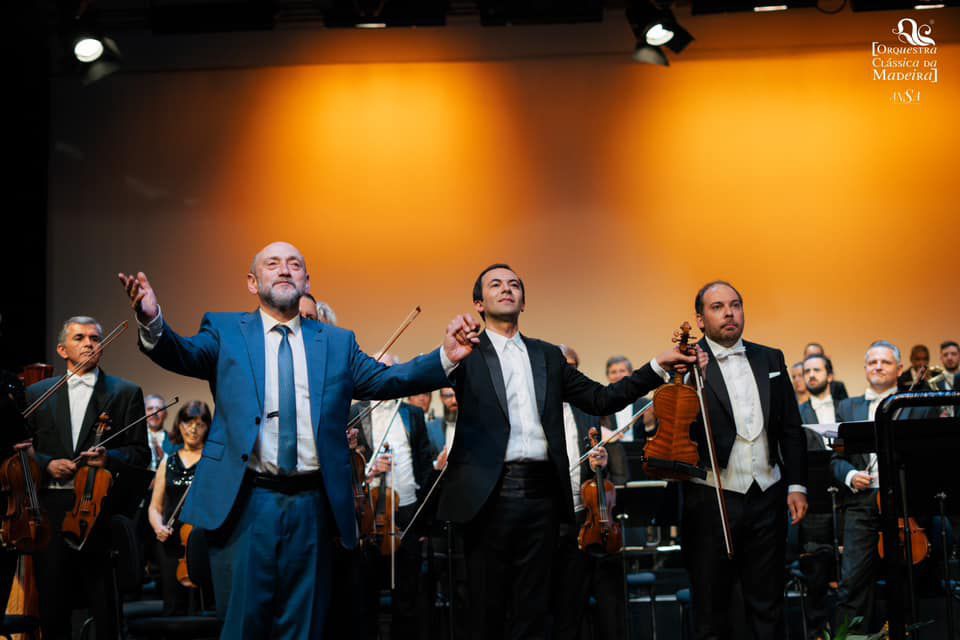
— What gives the projectGenesis a variety of genre styles: symphonic poem, symphonic rock poem, symphonic rock show, ballet?
I personally stand for diversity, because we appeal to audiences of different ages and tastes, and in order to convey the idea to these people, it is better to use styles that are close to them. It can be symphonic music, symphonic rock, or ballet. The premiere of the ballet made an indelible impression on me personally. The audience was also completely delighted; as I know, some of them came to the ballet several times.
— The project is currently touring in different countries. How does the audience perceive it?
We travel a lot. The last trip began in Portugal, continued in South America, Italy, Croatia, South Korea, and currently I am in France, at the largest classical music festival “Fêtes Musicales de Savoie”.
Countries, peoples and languages change, but the reaction remains incredible – applause, meetings and the desire to cooperate.
Of course, all thisgives motivation to continue and develop our project.
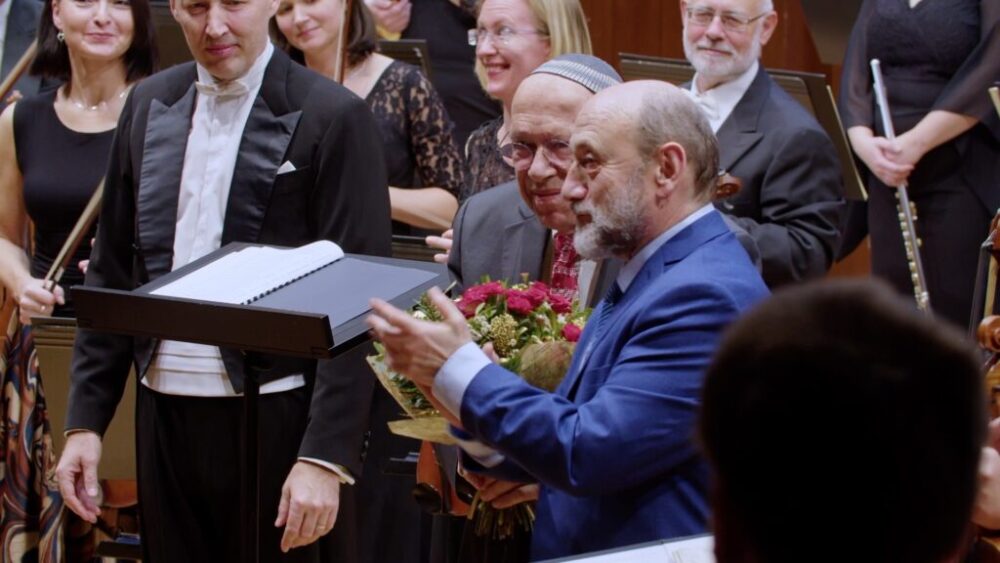
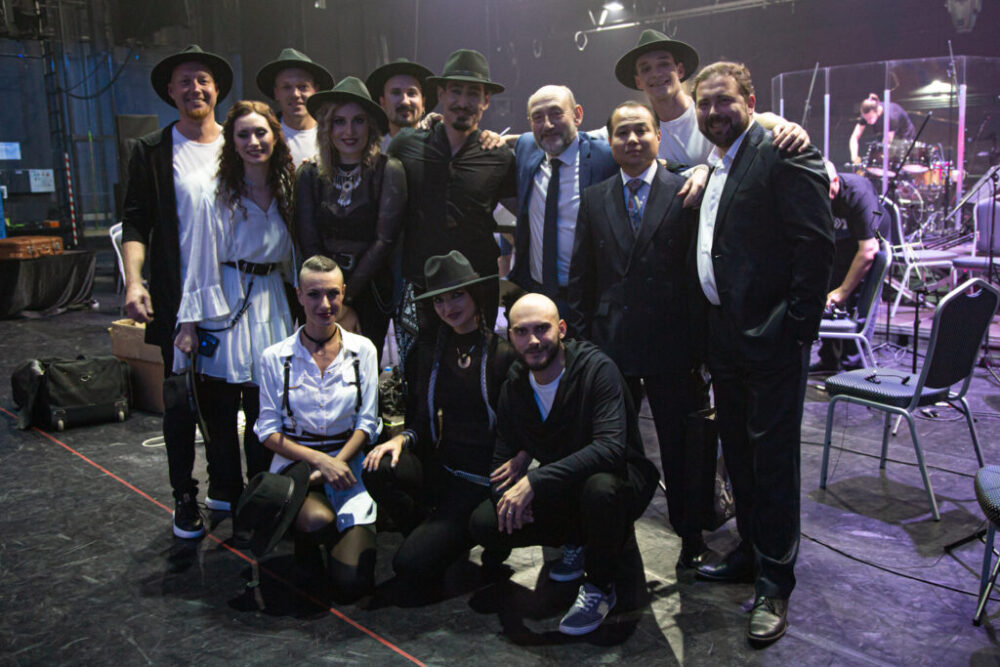
— How to bring together talented people from all over the world in one project? And how to find partners for the project and financial support? Your advice.
Let me say it again,I recommend to readersthe formula for success: initiative multiplied by motivation and multiplied by talent.
Initiative is necessary in order to be in a constant search for something new. Motivation is needed to develop the project, because just a good idea is not enough, you need to be able to arrangeit. This path is not easy, there will be many obstacles that need to be overcome, and motivation will undoubtedly help in achieving the goal.
And, of course, talent. It is necessary in any business. I think that people who combine all these three factors will be able to develop and promote their projects.
— The best producingschools. Your recommendations.
The best school for any producer is practice. It is such a pleasure toenjoy the success, but at the same time there is no need to be afraid that something goes wrong. It is very important to learn from failures, and as the famous American basketball player Michael Jordan said: “I’ve failed over and over and over again in my life and that is why I succeed.”
Source: dozado.ru